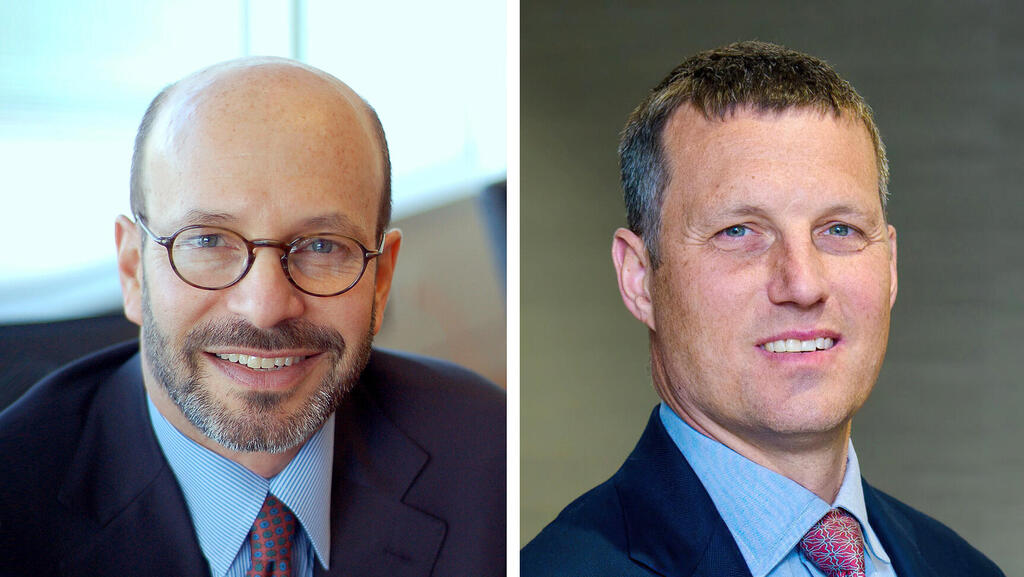
“We believe that an investment of this magnitude will help cement the ties between Israel and Abu Dhabi”
With typically impeccable American decorum, the senior representatives of the funds selling control of the Phoenix to the ADQ fund try to dissipate the concerns regarding the deal: "The new buyers are experienced and sophisticated investors with excellent financial strength, and I am confident that the Israeli regulator will see them as we did”
Making statements after the signing of a term sheet is not common, because mostly both sellers and buyers prefer to wait for the closing of the deal before talking about it.
The sale of the Phoenix Insurance company, Israel's largest institutional body, is not a standard deal. Only a term sheet was signed last week, and if the negotiations succeed, an agreement will be signed and the closing stage will only ultimately arrive after all the required regulatory approvals are received.
This is no trivial matter, because the sale of control (25%) of the Phoenix to ADQ, one of Abu Dhabi's wealth funds, for NIS 2.3 billion (approximately $670 million) is not a standard deal, and not only because the sellers – U.S. private investment funds Centerbridge and Gallatin Point – are selling the control only three years after having acquired it from Yitzhak Tshuva's Delek Group, but mainly because of the identity of the buyer: The Government of Abu Dhabi.
When the acquired company manages public savings in the huge sum of NIS 370 billion (approximately $107 billion), the transaction becomes very sensitive and a source of significant concern. It is for this reason that the existence of the deal stirred up a storm since being exposed for the first time in Calcalist last Wednesday, and from now on the big question is: Will Israel allow Abu Dhabi to buy the company, despite these significant concerns?
Despite the turmoil around this question, and the many voices calling not to approve the deal, until now no politician has spoken out against it. The reason is that the deal is particularly sensitive also on the diplomatic level because of the Abraham Accords. In other words, Israel's non-approval of the transaction may lead to discontent in Abu Dhabi, a country which only recently established a diplomatic relationship with Israel.
Centerbridge and Gallatin Point are selling most of their stock holdings in the Phoenix at a x2.5 profit, only three years after making the investment. The decision to sell the control was rather surprising, particularly since the market sentiment is not favorable, and the share is 10% below its record price.
However, in a conversation with Calcalist, their first interview in recent years, Ben Langworthy of Centerbridge and Lee Sachs of Gallatin Point, didn’t voice any concern about the timing.
“There is no urgency to sell, but two things happened to cause us to enter into this transaction. First, due to the execution of the strategic plan, our investors’ gains in three years were greater than what we anticipated for a five-year hold period. Second, we had an opportunity to enter a transaction that came to the table that we thought could help add tremendous value to the company,” says Sachs.
How long were the negotiations?
Sachs: “We’ve been working intensively with the group from Abu Dhabi for several months, including due diligence and negotiations.”
Why did you decide to sell to a group owned by an Arab country, when clearly the Israeli regulator might block the transaction in view of the numerous concerns around it?
Sachs: “Our goal was to find a partner with the sophistication required to help navigate the company ahead, and with the reputation and financial stability required to be approved as a controlling partner in the company. We found such a partner in the UAE, and we believe that an investment of this magnitude will help cement the ties between the countries.”
Are you aware of the concern surrounding an Abu Dhabi governmental fund taking control over an institution such as Phoenix?
This question pushes a button, and both Sachs and Langworthy promptly provided a lengthy explanation why they believe that the many public concerns are not rational. According to Sachs: “We of course realize Phoenix’s importance to Israel and understand the need for close scrutiny of any buyer, whether they are from Israel, the United States, UAE, or anywhere else. It is important for people to understand and appreciate the robust internal and external safeguards to the company and its clients. This includes comprehensive examination prior to the granting of a control permit as well as on-going regulatory oversight by the Securities Authority and the insurance and capital markets commissioner.
“The internal safeguards include completely separate accounts for the company’s money and client money, independent committees composed of Israelis only for making investment decisions at each, and strict conflict of interest policies that require any investment in which a controlling shareholder has an interest to be approved by a majority of the external, Israeli, board members. For context, there have been zero such investments since Gallatin and Centerbridge acquired the company in 2019. Against this background, we are confident that once the public understands the full picture the investment will be supported.”
Wouldn't it be easier to sell to a buyer in the U.S. or Europe? Why get involved with a buyer who requires a special government committee' approval?
Sachs: “We invest in companies throughout the world. Such transactions often require strict approval processes. In our experience, the approval process in Israel was one of the strictest we’ve ever encountered, and we needed to obtain approval from many governmental agencies. I am sure that this is the case for any buyer.
Langworthy: “What you see as an unnecessary complication for us is in fact exactly what should give the Israeli public an even greater sense of safety, knowing that its interests are protected by the regulator, who carefully scrutinizes any potential buyer. The new buyers are experienced and sophisticated investors with excellent financial strength, and I am confident that the Israeli regulator will see them as we did.”
Did the ADQ fund confide in you with their reason to buy the Phoenix?
Sachs: “ADQ is investing in Phoenix because it is a tremendous company. It is the same reason why management and we at Gallatin are eager to invest on the same terms.”
How much will the ADQ fund be involved with the day-to-day management of the Phoenix? And if it won't, why invest in the company?
Langworthy: “Our role as shareholders is not to manage the company, but to see that it has an excellent management team that will achieve the strategic objectives of the companies we own. Management is obviously in charge of running the company day-to-day. We have no reason to believe this would change under the new ownership. It works so well – why change it?”
Related articles:
How many directors will you and the new investors have?
Sachs: “We do not anticipate a change in the overall number of directors on behalf of the controlling shareholders following the transition from the current to the next controlling group. The exact composition is yet unknown, but Beni Gabbay will continue to serve as chairman of the board, and we expect that the directors who currently represent Gallatin on the board of directors will continue to represent it.”
The acquisition of Phoenix by Centerbridge was made after several attempts to buy other financial institutions such as Union Bank and Leumi Card (currently MAX). The representatives of both funds note that the investment in Phoenix is not the last investment they are expected to make in Israel.
“We are always searching for attractive investments and believe that the combination of capital, education and hard work make Israel an attractive place,” says Sachs, and Langworthy adds: “Israel remains a focus market for us given the combination of its excellent demographics and macroeconomic tailwinds.”
Is it true that you are interested in acquiring the credit card company MAX, should it not be purchased by Clal Holdings?
Sachs: “We are focused on Phoenix.”
Throughout the world, inflation and recession are being felt. In your opinion, what will be the impact of this trend on the investment market in the coming year?
Sachs: “Our policy is not to make macro gambling on the basis of short-term market trends. Instead, we work closely with our portfolio companies to enable them to succeed in various environments. Regarding Phoenix specifically, the management worked hard to mitigate the company’s economic volatility vis-à-vis the capital markets, and fine-tune its business mix.”
Langworthy: “We believe Israel is strongly positioned with relatively low inflation and solid economic growth. Globally, insurance companies should be net beneficiaries of a higher yield environment.”
